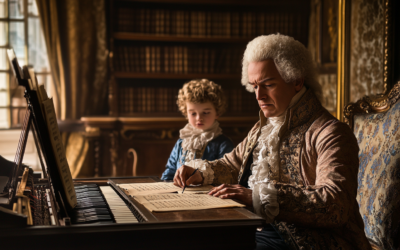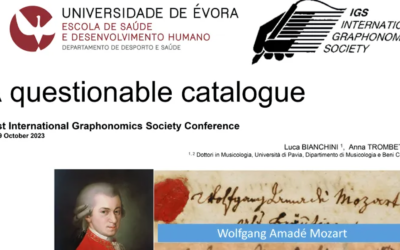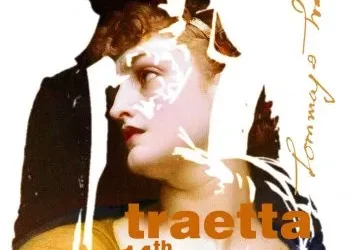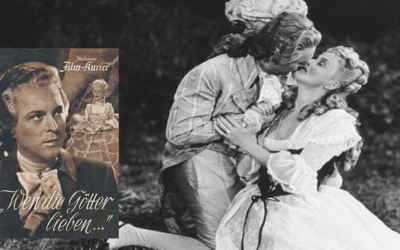A Modern Premiere in Germany
Pacini’s Medea Brought to Life
Giovanni Pacini’s Medea, revised by Luca Bianchini and Anna Trombetta, made its modern premiere in Germany at the Theater für Niedersachsen. This monumental work was performed in full, marking a triumphant revival of Pacini’s forgotten genius.
Mozart: The Fall of the Gods
This book offers a fresh and critical look at the life of Wolfgang Amadeus Mozart, challenging the myths that have surrounded him for centuries. We strip away the romanticised image of the “natural genius” and delve into the contradictions within Mozart’s extensive biographies. Backed by nearly 2,000 meticulously sourced citations, this work invites readers to explore a deeper, more complex understanding of Mozart. Perfect for those who wish to question the traditional narrative, this biography is a must-read for serious music lovers and historians.
"Pacini’s Medea returns to the stage, reminding us that some of the most powerful operatic works have yet to receive the recognition they deserve."
@MozartrazoM
For the first time in Germany, Giovanni Pacini’s monumental opera Medea has been performed in a modern premiere at the Theater für Niedersachsen in Hildesheim. This captivating work, filled with both horror and compassion, was masterfully revived thanks to the new edition transcribed and revised by musicologists Luca Bianchini and Anna Trombetta. The edition, comprising nearly 1,500 pages of score and sheet music, restores the grandeur of Pacini’s forgotten masterpiece.
The opera, which was performed in its entirety under the baton of Maestro Florian Ziemen, received enthusiastic acclaim during its premiere, with several more performances scheduled in the weeks following. Originally premiered in 1843 to great success, Medea once again demonstrated its powerful impact on audiences, blending dramatic intensity with Pacini’s masterful composition.
This modern revival highlights how Pacini, unjustly neglected in music history, deserves to stand among the greats of opera. The character of Medea, both terrifying and pitiful, remains one of the most complex and fascinating figures in opera, and Pacini’s setting captures every nuance of this tragic tale.
You May Also Like
K.143: A Recitative and Aria in the Shadows of Doubt
K.143 is a prime example of how Mozart scholarship has turned uncertainty into myth. With no definitive evidence of authorship, date, or purpose, this uninspired recitative and aria in G major likely originated elsewhere. Is it time to admit this is not Mozart’s work at all?
The Enigma of Mozart’s Symphony K.73
The Symphony in C Major K.73 has long puzzled Mozart scholars. Touted as a youthful work of prodigious talent, its origins are murky at best. The title “Symphony,” inscribed on the first page of the autograph, is devoid of the composer’s name, casting immediate doubt on its attribution to Wolfgang Amadeus Mozart. Was this truly his work, or is the Symphony yet another victim of overzealous attribution?
Mozart’s Thematic Catalogue Exposed as a Forgery
A groundbreaking forensic analysis reveals that Mozart’s thematic catalogue, long thought to be his own work, is a posthumous forgery. This discovery, detailed in Mozart: The Construction of a Genius, turns centuries of Mozart scholarship on its head, demanding a re-examination of his legacy.
Bologna Connections
Quirino Gasparini’s rediscovered Mitridate aria takes centre stage in Bern and Basel, shedding light on Mozart’s reliance on this forgotten composer.
International Traetta Award
We are thrilled to announce that the 14th International Traetta Award has been bestowed upon Anna Trombetta and Luca Bianchini. This prestigious recognition honours their outstanding dedication to musicological research on primary sources of the European musical repertoire, offering significant contributions to reshaping the historiography of 18th-century music.
A Legacy Rewritten by the Shadows of History
Mozart’s image, often regarded as a universal symbol of musical genius, was heavily manipulated by the Nazi regime, a fact largely ignored in post-war efforts to “denazify” German culture. From propaganda-driven films to anti-Semitic narratives, Mozart’s legacy is far more complex and troubling than we are often led to believe.







